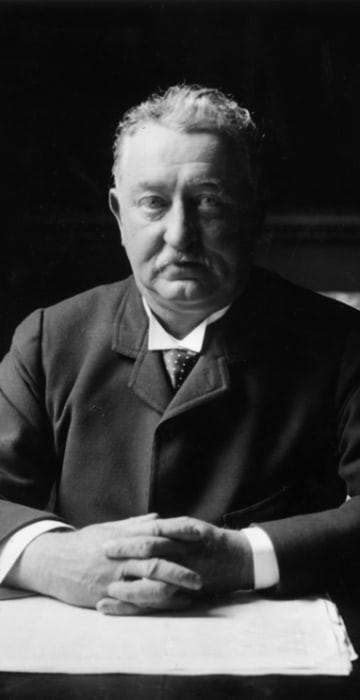
Africa
Zimbabwe, a nation in decline

The British colonial statesman and financier Cecil John Rhodes circa 1900. Rhodes made a fortune from diamond mining in South Africa and used his wealth to extend British rule there. In 1890 he was made prime minister of Cape Colony, and the area was named Rhodesia after him. The country was renamed Zimbabwe in 1980 after a bitter independence struggle between the white minority and the black African majority.
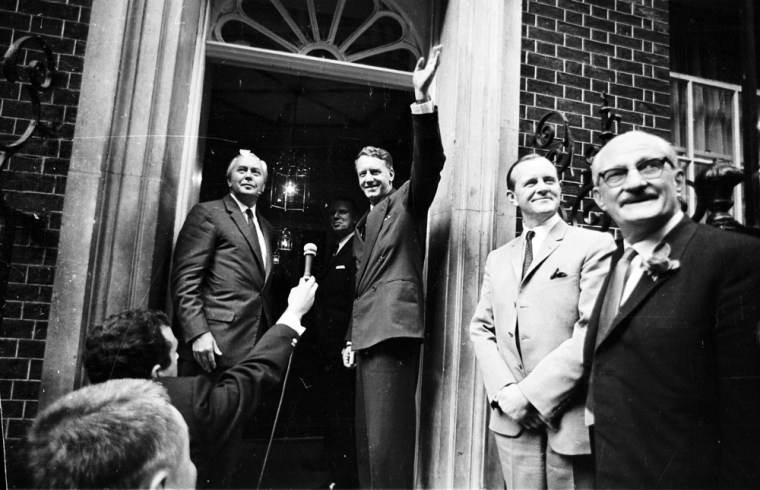
Rhodesian Prime Minister Ian Smith meets the press with British Prime Minister Harold Wilson at 10 Downing St. In 1965, the Rhodesian government unilaterally declared its independence from British rule, but the UK did not recognize the act and demanded more complete voting rights for the black African majority in the country. The move by the Rhodesian government sparked international outrage and economic sanctions.
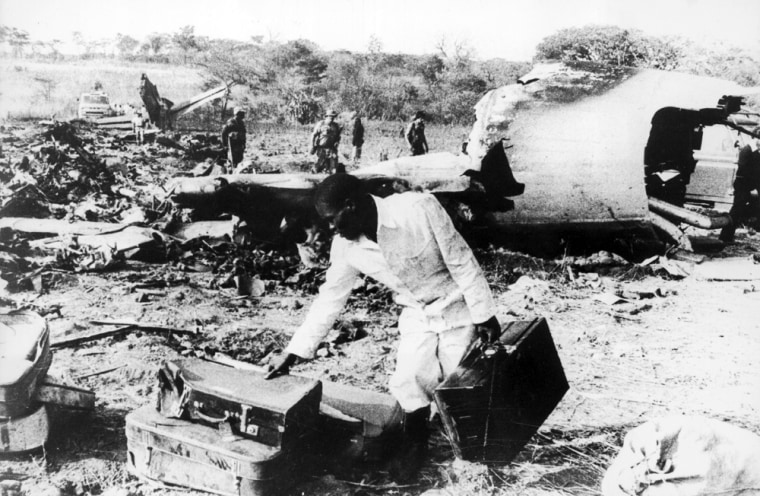
After Rhodesia declared independence from the U.K., black African nationalists launched guerrilla warfare against the government. Violence escalated throughout the 1970s. In this photo men sift through the wreckage of an Air Rhodesia Viscount airplane shot down by a terrorist heat-seeking missile in September 1978. Of the 56 passengers on flight RH825, 18 survived the crash, but 10 of the survivors were later killed by the same guerrilla group who shot down the plane.
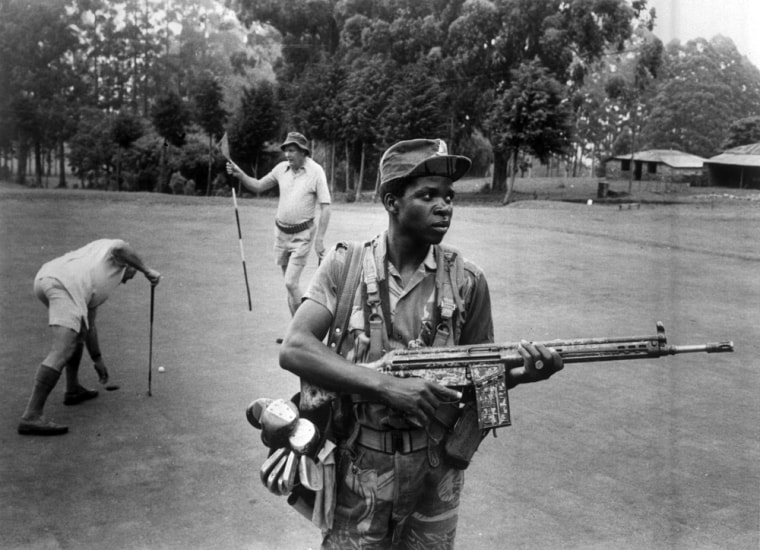
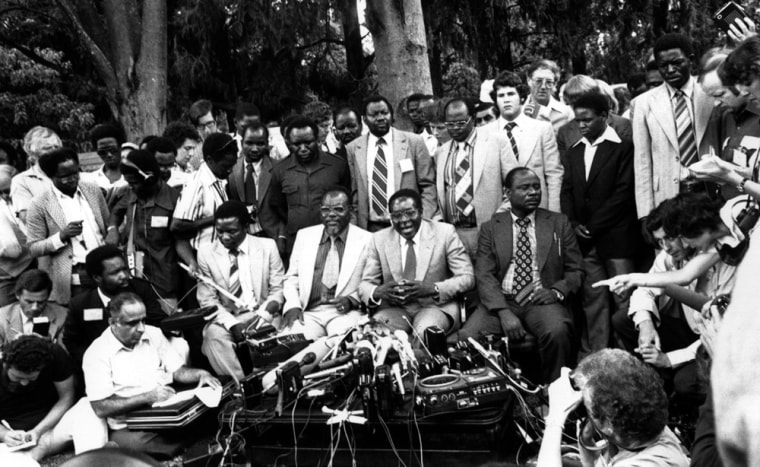
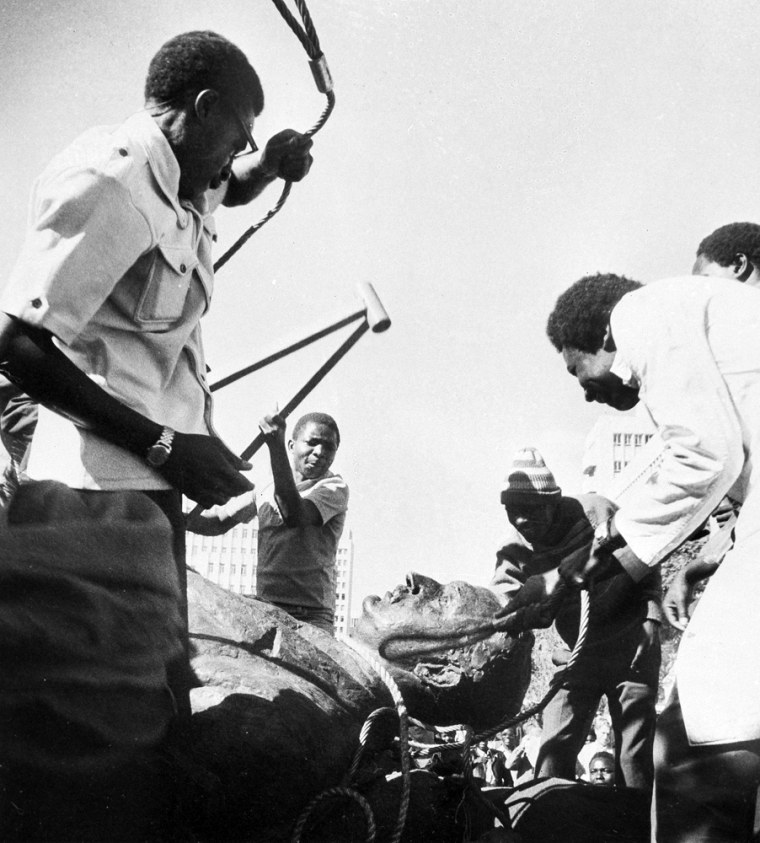
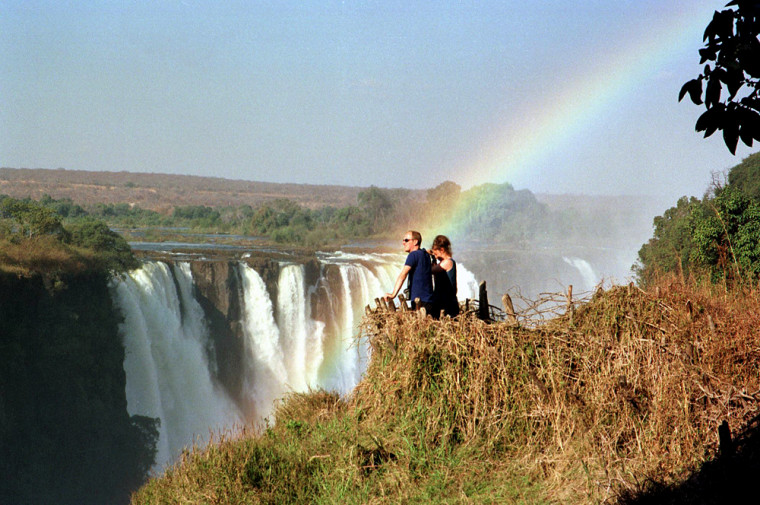
After years of internal strife, peaceful times in Zimbabwe paved the way for a surge in tourism. This photo from August 1998 shows a few of the hundreds of thousands of tourists who flocked to see the spectacular Victoria Falls in northwest Zimbabwe. The falls, which are shared by Zimbabwe and Zambia, historically had more visitors on the Zimbabwe side because facilities were better developed. But the number of tourists visiting Zimbabwe has dropped dramatically since 2000 when Mugabe's repressive regime began stirring civil unrest. By 2006, hotel occupancy on the Zimbabwean side of the famous fall had dropped to just 30 percent, while occupancy on the Zambian side was near capacity.
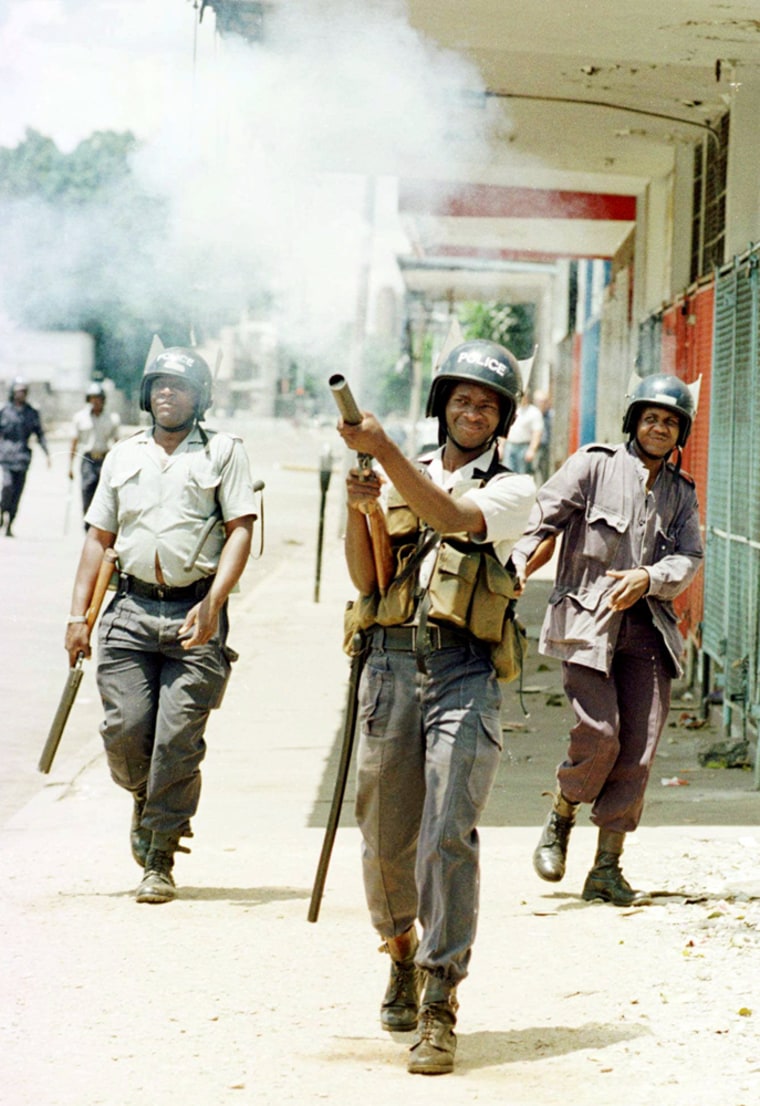
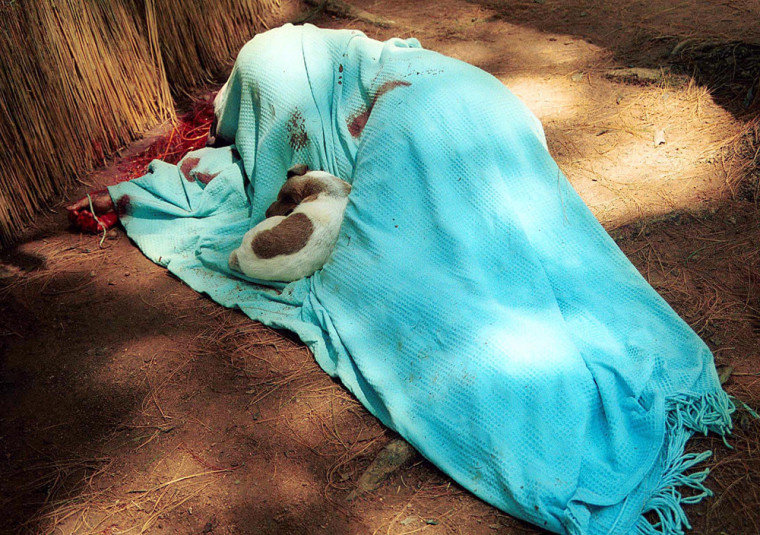
The body of farmer Terry Ford lies under a blanket with his Jack Russell dog curled up on him after he was allegedly shot dead by a group of war veterans and farm invaders at his farm on March 18, 2002. Ford, 51, was the 10th white farmer killed since Mugabe instituted his radical land redistribution campaign in 2000 and militants began violent occupations of white-owned farms. The resulting violence was met with widespread international condemnation, caused a mass exodus of white farmers and crippled the economy.
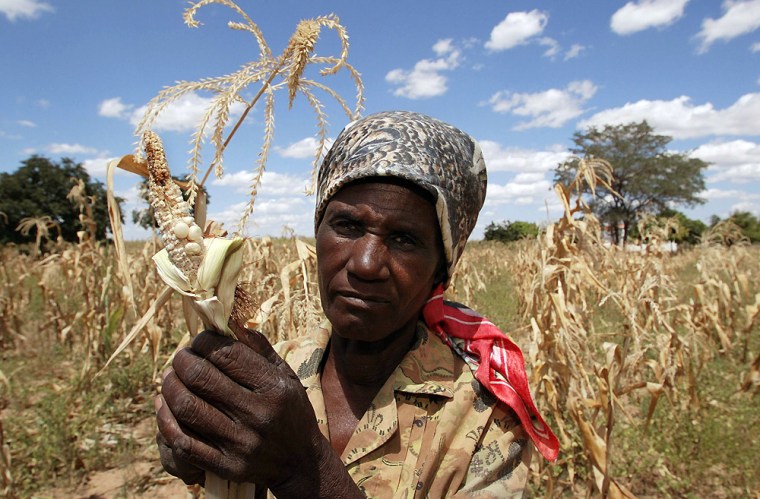
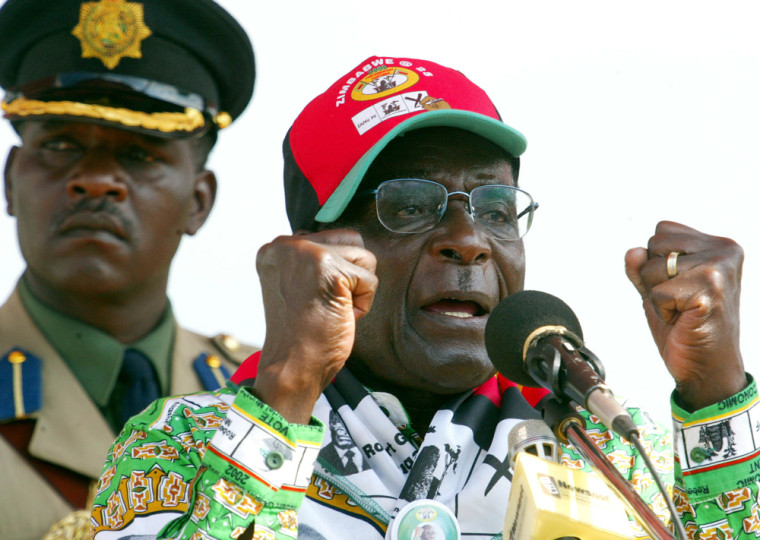
Mugabe, Zimbabwe's only leader since independence in 1980, addresses supporters at an election rally on March 30, 2005. He has come under increasing international pressure for his repressive regime which has seen the Zimbabwe economy falter under run-away inflation and massive food shortages. While Mugabe has restricted all freedom of the press and suppressed all political opposition - allegedly torturing and even killing opposition members - he continues to blame his country's woes on Britain and its Western allies.
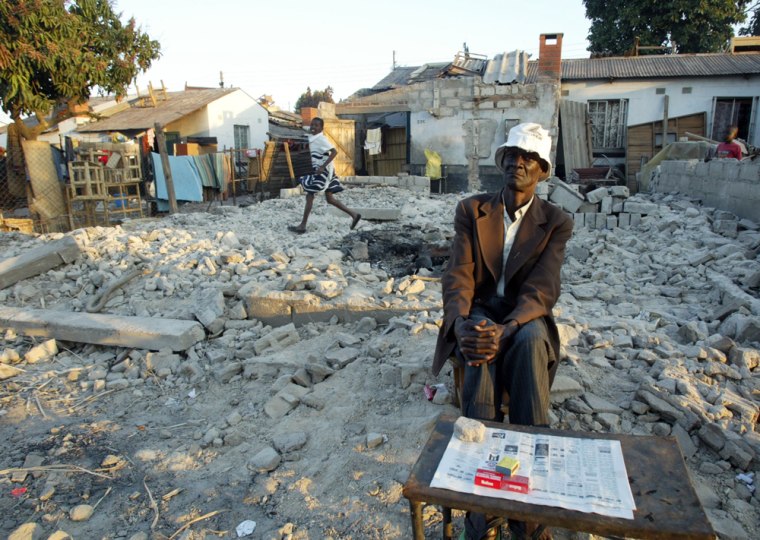
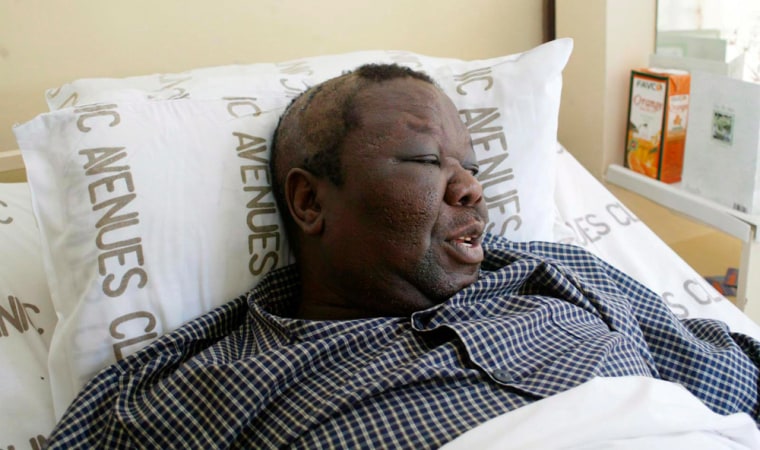
Morgan Tsvangirai, head of the Movement for Democratic Change (MDC) opposition party, in a hospital bed on March 14, 2007 after being beaten and detained by Zimbabwe security forces in Harare. He reportedly suffered a fractured scull along with broken hand and internal injuries. Mugabe acknowledged that his political rival Tsvangirai was beaten, but he told supporters he asked for it.”
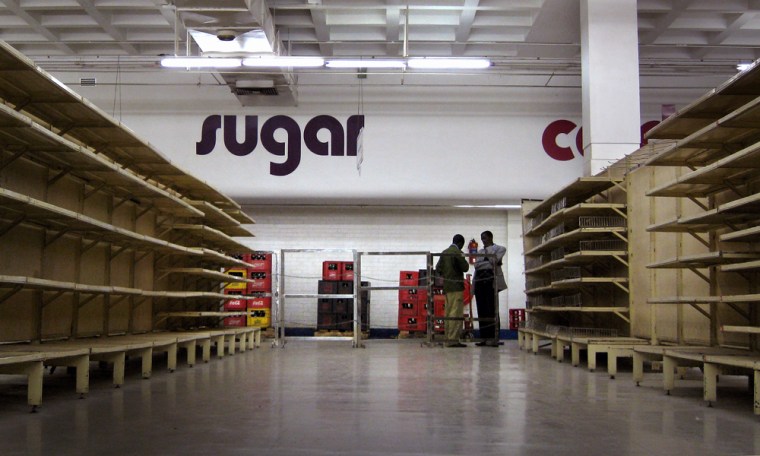
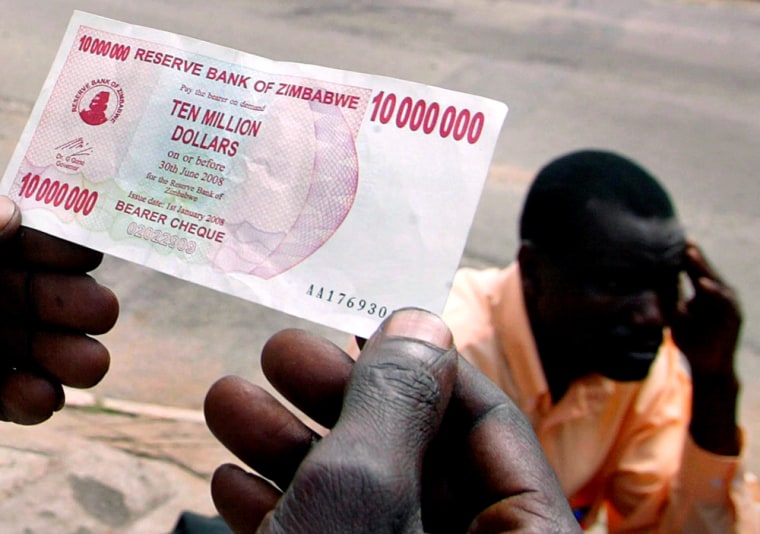
A Zimbabwean holds a new 10 million Zimbabwe dollar note after withdrawing cash from a local bank in Harare on Jan. 18, 2008. With inflation running around 100,000 percent; by far the highest rate of inflation in the world, few people can afford anything other than the most basic foodstuffs and spend any money they have as quickly as they can before costs go higher. While Mugabe's critics accuse him of destroying what was once one of Africa's most developed economies, he blames his country's economic woes on western countries trying to topple him.
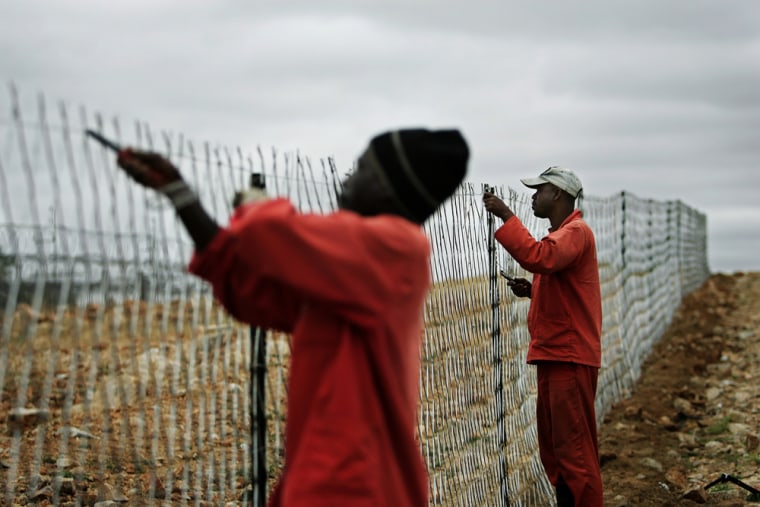
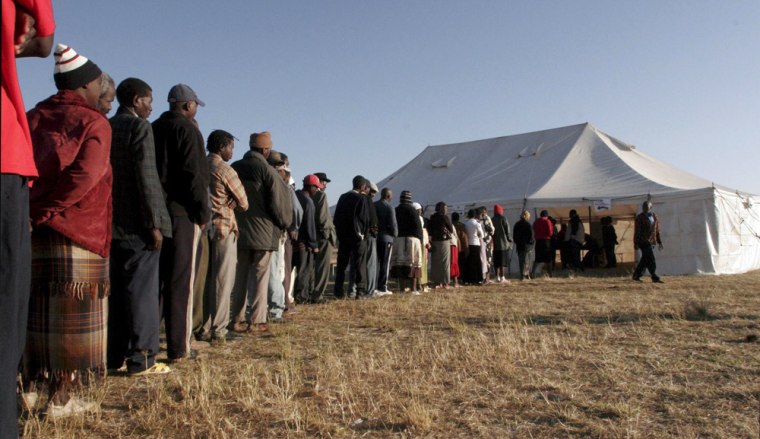
Voters wait patiently to cast their vote at a voting station in Harare on June 27, 2008. After opposition leader Morgan Tsvangirai won the first presidential poll, President Mugabe called for a run-off election in an attempt to hold onto power for another term. Tsvangirai boycotted the poll, saying a free and fair election was impossible as a result of the violent intimidation of his supporters, leaving Mugabe to a one-man election.
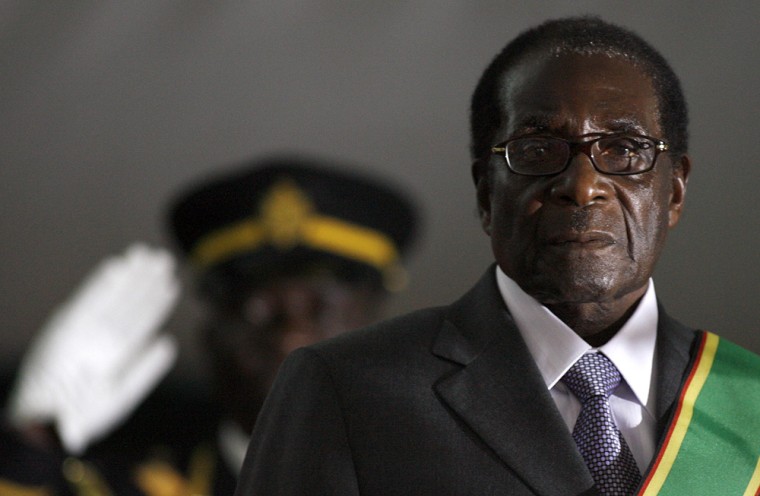
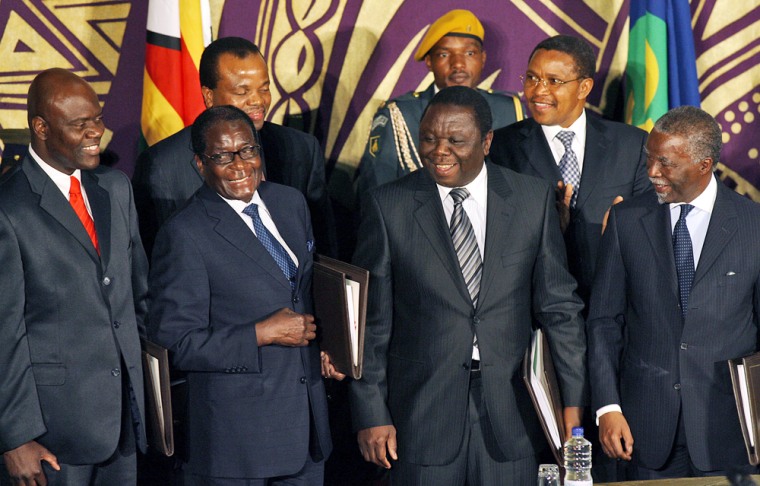
Zimbabwe's President Robert Mugabe, second from left, Prime Minister Morgan Tsvangirai, center, and South African President Thabo Mbeki, right, pose after signing a power-sharing accord on September 15, 2008 in Harare. Despite several rounds of talks, Mugabe's ZanuPF party and Tsvangirai's MDC party have been unable to reach agreement on the formation of the government, leaving the reeling country in a standstill.
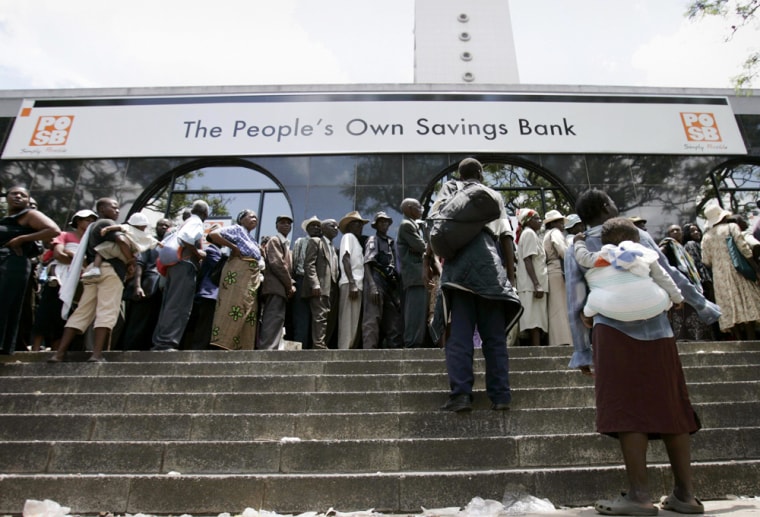
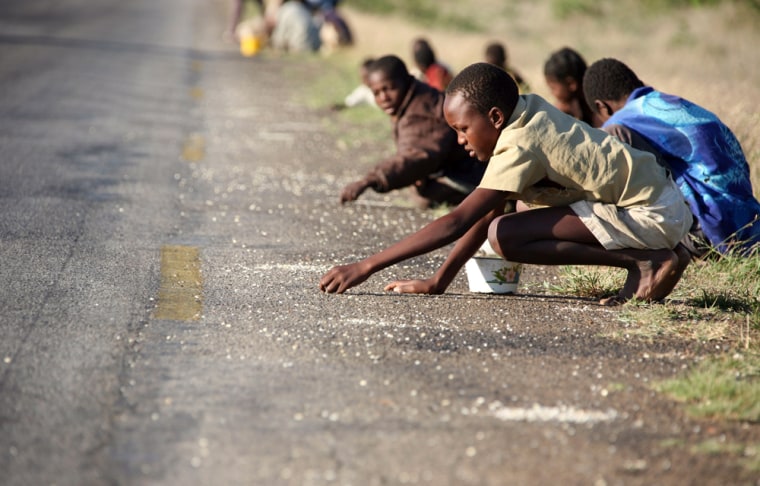
Children and their parents pick up single corn kernels spilled on the road side by trucks ferrying corn imported from South Africa to Zimbabwe on Dec. 14, 2008. According to a United Nations forecast, a full scale humanitarian emergency is unfolding in Zimbabwe with more than 5 million people, about half the population, needing food aid.
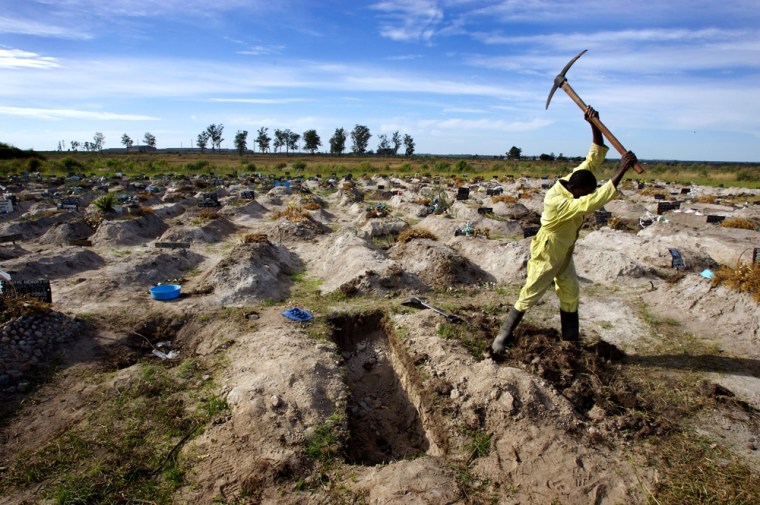
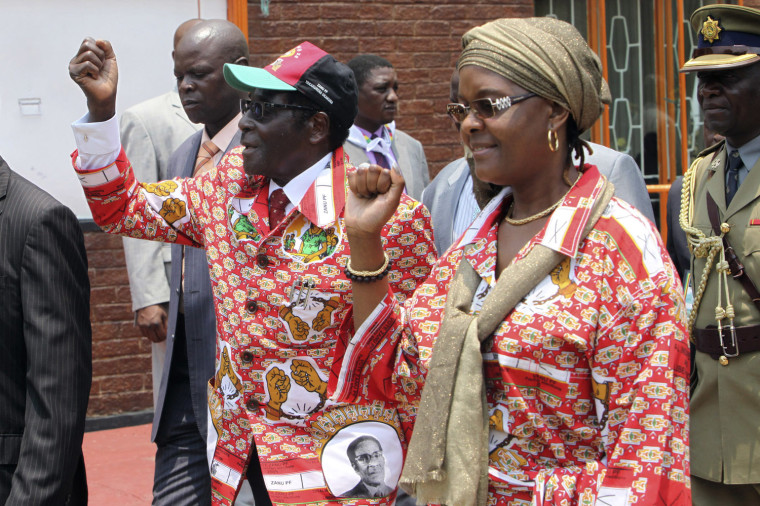
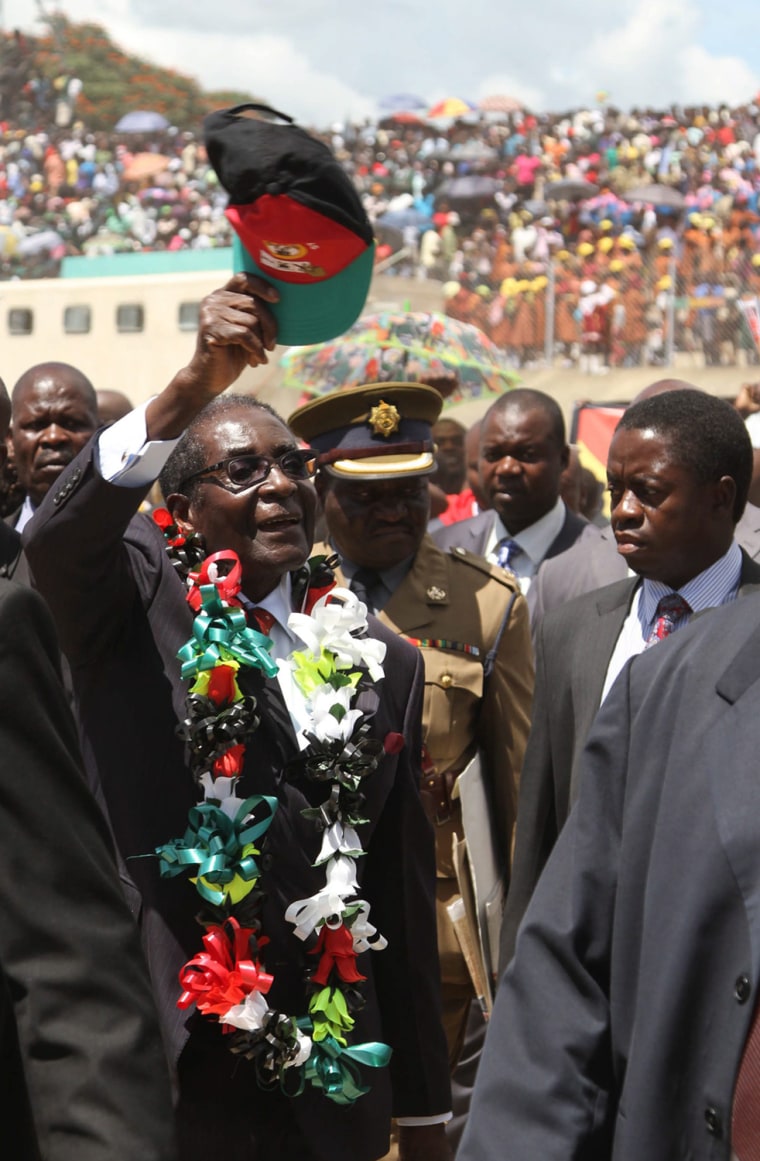
President Robert Mugabe arrives for a celebration to mark his 88th birthday at Sakubva Stadium, Mutare, on Feb. 25, 2012. Africa's oldest head of state marked the occasion with a speech in which he vowed to continue leading the country, despite rumors of ill health. 'I still have the strength to go forward,' Mugabe told the crowd. 'There is no going back. Backward never,' he said.
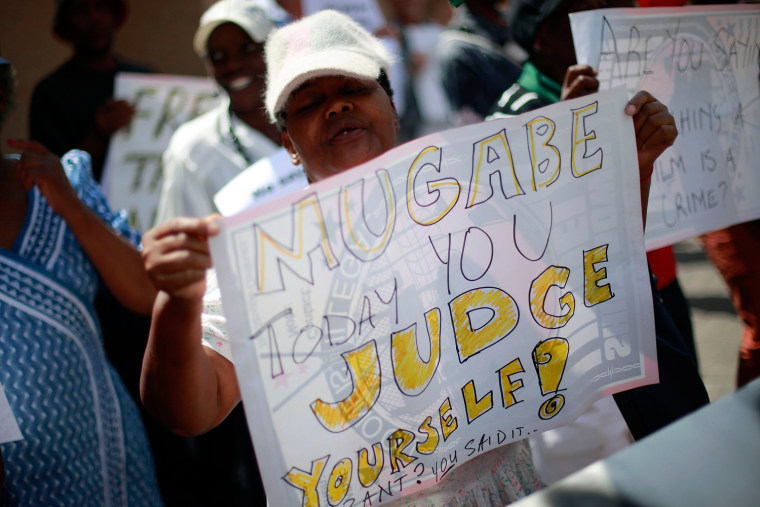
Supporters of six Zimbabwean civic activists found guilty of conspiring to commit public violence in Harare, picket outside the Zimbabwean consulate in Johannesburg, South Africa, on March 20, 2012. The six activists were found guilty by a court of conspiring to commit public violence during a meeting in which they watched video footage of the mass uprisings in Egypt that toppled Hosni Mubarak.